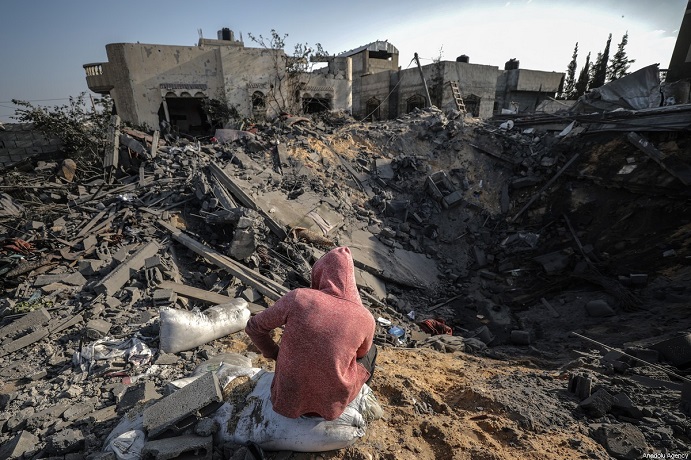Middle East Monitor / November 29, 2019
The Israeli military and its political officials are divided over the question of a long-term truce with Palestinian factions in the occupied Gaza Strip, Haaretz has reported.
According to the paper’s defence correspondent Amos Harel, “the army’s view” is that Hamas “is concerned mainly about the intolerable living conditions” in the blockaded territory.
The Israeli military has thus “recommended that the government consider the reintroduction of far-reaching economic-relief measures for Gaza.”
Specifically, the military believes that Hamas “wants a long-term ceasefire…contingent on the launching of various infrastructure projects”.
These include “improved supply of electricity to the Strip, the building of a hospital at the Erez checkpoint, the upgrading of the water and sewage infrastructures and initial preparations for the revitalization of the industrial zone at the Karni checkpoint.”
However, the Israeli government is not on the same page as military officials, both as a result of the current political paralysis, and the hardline positions taken by ministers. For now, only modest measures have been implemented – such as an extension of the permitted fishing zone.
According to Israeli analyst Shlomi Eldar, despite the urgency of implementing measures to ease the Gaza blockade, “any lifting of restrictions on Gaza will have to wait until after Israel’s next elections and the formation of a new government”.
“Israel will likely be mired in its political deadlock and paralysis for at least six months to come. Hamas will not wait”, Eldar added. “Given the dire plight of the enclave’s two million Palestinian residents…Gaza needs much more than another 100 or 200 work permits.”
While Eldar speculated that Israeli Defence Minister Naftali Bennett would find it difficult to adopt a more moderate tone, based on his previous rhetoric regarding the need for a military “solution” to Hamas and other factions, Harel suggested that Bennett could be amenable to the army’s view.
“In contrast to the army, in this context, Bennett does not use the word hasdara (arrangement) explicitly, to avoid giving the impression – which is well-grounded – that what is going on are effectively indirect negotiations with Hamas,” Harel wrote.
Yet in addition, Bennett also believes “Israel needs to bolster its deterrence against Gaza by means of more massive attacks in response to rocket fire.”













